Prince got it from me!” Stephen Mallinder jokes about his studio process for his solo LP, Pow Wow. “It was fun to play everything from drums, guitars, keys, trumpet, percussion, tapes… and record and produce it all.” Originally pressed on Fetish Records in 1982, Pow Wow was the Cabaret Voltaire member’s only solo record up until Um Dada on Dais Records last year, completed in-between the work with his current band Wrangler. Pow Wow will be reissued on Solvent’s new wave and post-punk label, Ice Machine on June 16th as a double LP and CD release (details below) alongside a new video of “Cool Down”.
Mallinder got little sleep during the time of recording Pow Wow. He worked with Cabaret Voltaire at Western Works studio in Sheffield during the day and forged on with his solo work at night when everyone else had gone home. Its result is an effective blend of post-punk and experimental electronics that are industrial-tinged but soft and malleable—Pow Wow demonstrates what type of role Mallinder took in Cabaret Voltaire. “It was done on 8 track and very multi-tracked, so lots of recording, then bouncing, and overdubbing, to get the integrated feel of the tracks,” Mallinder says. “I became very adept at pressing record then jumping onto equipment to play it – it was actually a very ‘live’ record in that sense. I’ve always seen rhythm at the core of what I do so I loved the layering of counter rhythms.The sequence/arpeggiator parts were all drum machine triggers that were played live. It was about creating a distinct groove so arrangements came from weaving in and out of those linear grooves.”
We chatted with Mallinder about the reissue, Spaghetti Western influences, and quarantine. Read below:
First off, how are you doing during these times? Do you find yourself to be productive despite all that’s going on in the world?
Yes it’s such a strange time to living through and had to adapt but I’ve been really busy —the Pow Wow release was underway before the ‘situation’, so to speak, and we all just kept moving ahead.
When it all locked down we were just completing tracks for a release with Julie Campbell (LoneLady), Benge and myself so all three of us have been finishing them remotely.
And I’ve got lots of other things ongoing – we managed to do a video from home with Dan Conway for a spoken word release that I contributed to it’s an album by Khost ‘Buried Steel’. And I got another one to do for a track with Mark Stewart and Eric Random… my bedroom is my film studio. Now I’m doing some recordings with Aki Haruna, an amazing artist who made our recent Wrangler videos.
There’s always something to work on, plus I teach on a Sound Arts programme which is very testing in lockdown.
Do you look back on Pow Wow fondly? How do you feel about it in 2020?
Yes I have great memories, not just making the record but also that time which was mad, exhilarating, and so many interesting people and opportunities emerging. Partly because it was that vital time, but also being in our prime so we were all full of it.
I’d not listened to the album for such a long time until sorting out the re-release so I came to it quite disconnected and fresh. It was nice, it reminded me of a different way of making music, but also the similarities of what I’m drawn to in creating tunes when I’m left alone.
And why did you decide now would be a good time for its reissue?
I’d had a few offers of re-issuing but it was only when Jason [Amm] approached me that I was interested. We’d been connected through Wrangler and Solvent and I’m a massive fan of his work. I have great respect for his taste and attitude. I knew he would do such a fantastic job.
Much of the album comes across as experimental post-punk that blends guitars with electronic elements, as well as including interesting methods and processes of recording. If you can recall, what were your inspirations at the time? What sort of gear did you use?
It was done in our Western Works studio… mostly at night because I was doing Cabaret Voltaire during the day. I was built up from drum machines triggering simple sequencers, mono synths, and lots of live overdubs – drums, bass, guitars, horns, percussion. Then ambient and TV extracts.
What were you listening to?
I was listening to such a cross section of music and it seemed to reflect that. We were making electronic music but delving into esoteric stuff everything from Gamelan to John Carpenter soundtracks, Jon Hassell, Terry Riley, but also Sun Ra, Don Cherry, lots of funk, systems music, you name it.
Some tracks such as “Del Sol” really have components of CV that fans recognize and love but then you seem to add touches of playfulness and, in this case, a sort of Spaghetti Western sound. What approach did you take with your solo work that was separate from Cabaret Voltaire?
Ha ha, yes I was devil for early Morricone. I think I took the opportunity to focus on music with my voice taking a supporting, rather than leading role as with Cabaret Voltaire. I had the chance to play every instrument so I indulged the music and playing with the form. I somehow wanted to bridge Neu! with the other elements—a bit of funk, a bit madness.
Why you chose “Cool Down” as the single and can you tell us a bit about the video that goes with it?
Originally Fetish released “Cool Down” as 12-inch, it came out separately from the album so it had a bit of previous as a single. It worked well as a track that captured the vibe of the album and was quite direct so lent itself to a video.
Robert Fantinatto, who directed the truly wonderful I Dream of Wires film, offered to make a video. We shared a love of brutalist design, and minimalist 70s sci-fi and this was the result of his labours, and think it captures the fluid movement and flow of the music: sparse and clean … and a bit weirdly unsettling.

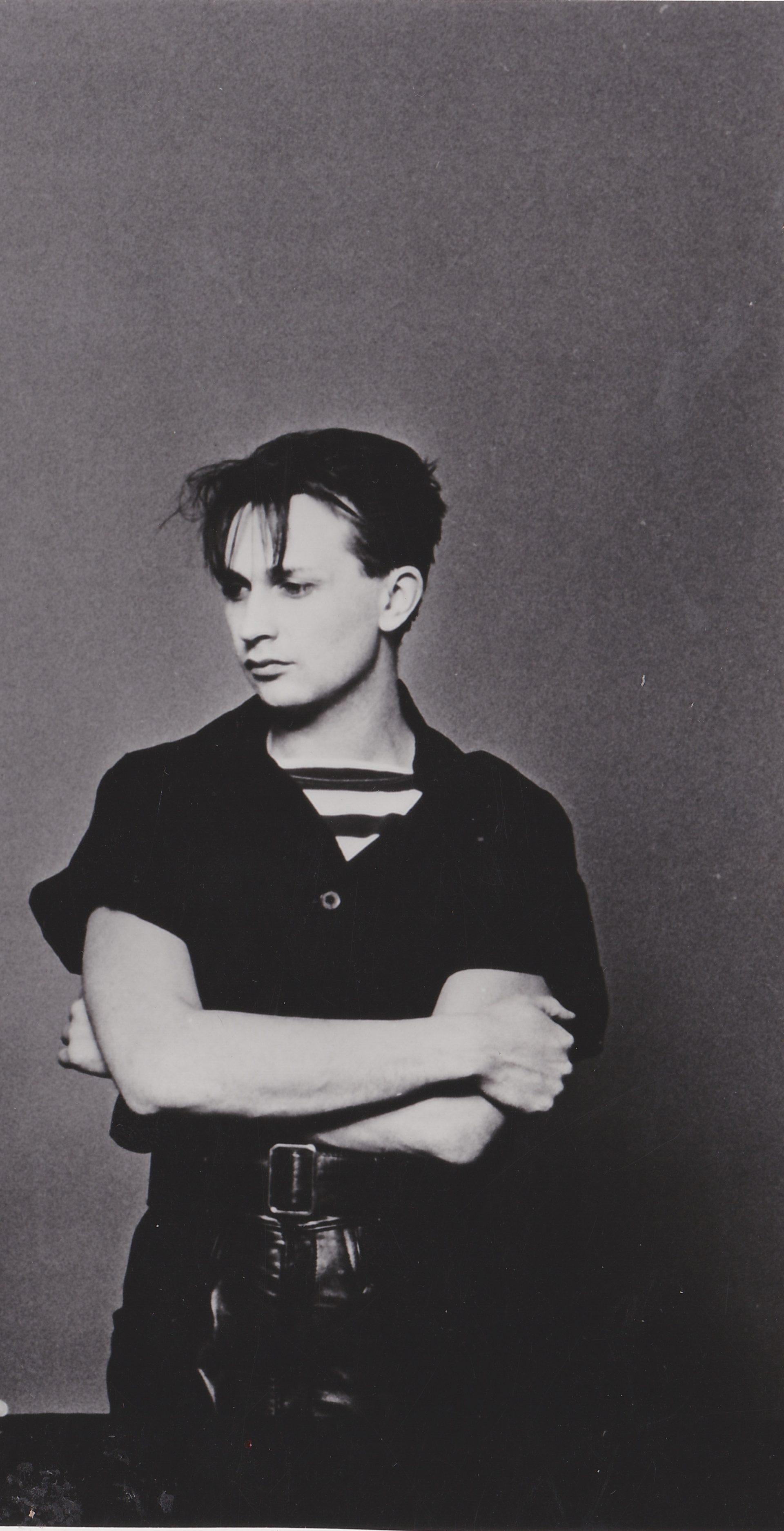

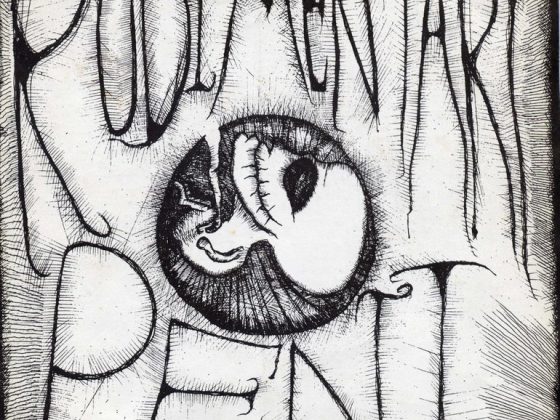
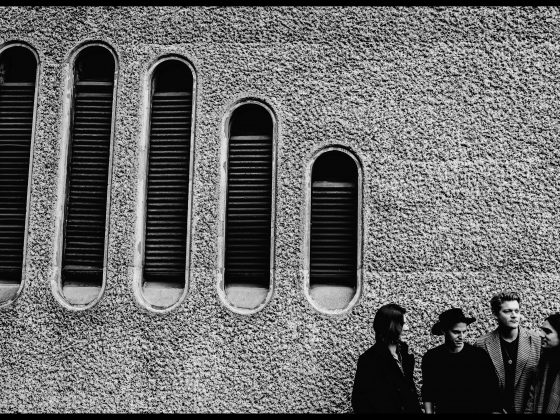

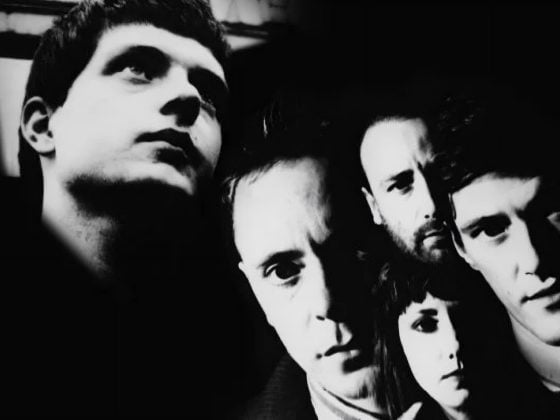


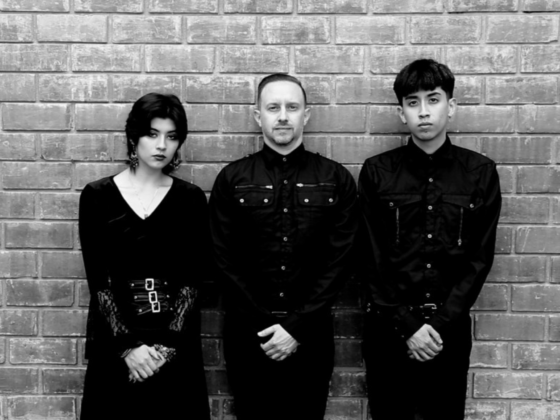
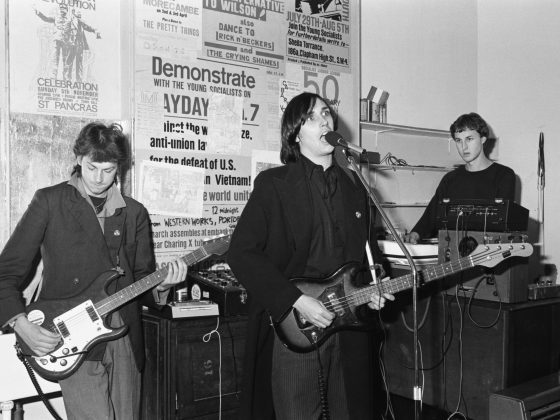




 Or via:
Or via: